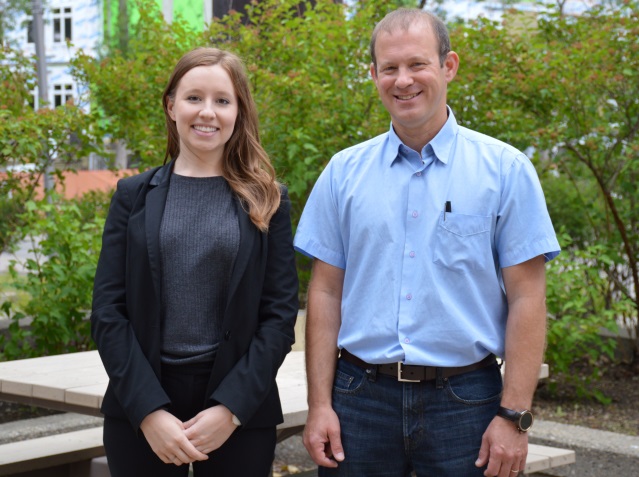
L: Victoria Rudolf
R: Professor Eran Kaplinsky
The Dean's Special Fund - valued at $25,000 per installment - has been established by Dean Paul Paton to support research and professional development activities. The source of funding is operating money - the University of Alberta Faculty of Law's main budget - granted by the Government of Alberta.
The Fund was first established in summer 2016, and there have been two installments since - one in fall 2016/winter 2017 and again in summer 2017. To apply, a Faculty member must provide an outline of what the funds would be used for. Each Faculty member may be granted up to $1,500.
"The Fund helps Faculty members with their research and also provides a great opportunity for students to work closely with a Faculty member, improve his/her legal research and writing skills and obtain some financial support," said Professor Christopher Sprysak, Associate Dean of Research & Faculty Development.
Through the Fund, Professor Eran Kaplinsky was able to hire two students as research assistants for a book chapter on compensation to taxi plate owners for losses resulting from the legalization of Uber by Canadian cities. He noted that "students bring energy, enthusiasm and fresh ideas to research projects and provide excellent support to Faculty while broadening and refining their research and writing skills," recognizing that the opportunities created by the Fund are beneficial to both the Faculty members and students involved.
Victoria Rudolf, one of Kaplinsky's student research assistants, said that "the complex and interesting questions that Professor Kaplinsky sought to analyze and answer led [her] to broaden [her] interest in legal research and gain insight into how the law interacts with people every day." The opportunity allowed her to acquire practical and technical experience, improve her legal research skills and better understand legislation and the legislative process.
Anthony Saric, a student research assistant hired by Professor Anna Lund, said he "was able to use and vastly improve [his] research abilities on a project with real world application."
In addition to hiring a student researcher, Faculty members can use the funds to travel to conferences and cover other research-related costs, for example, conducting surveys.
This Fund may help to hire any law student - including those in their first year.
Sprysak hopes that more Faculty members and students will take advantage of this win-win arrangement.